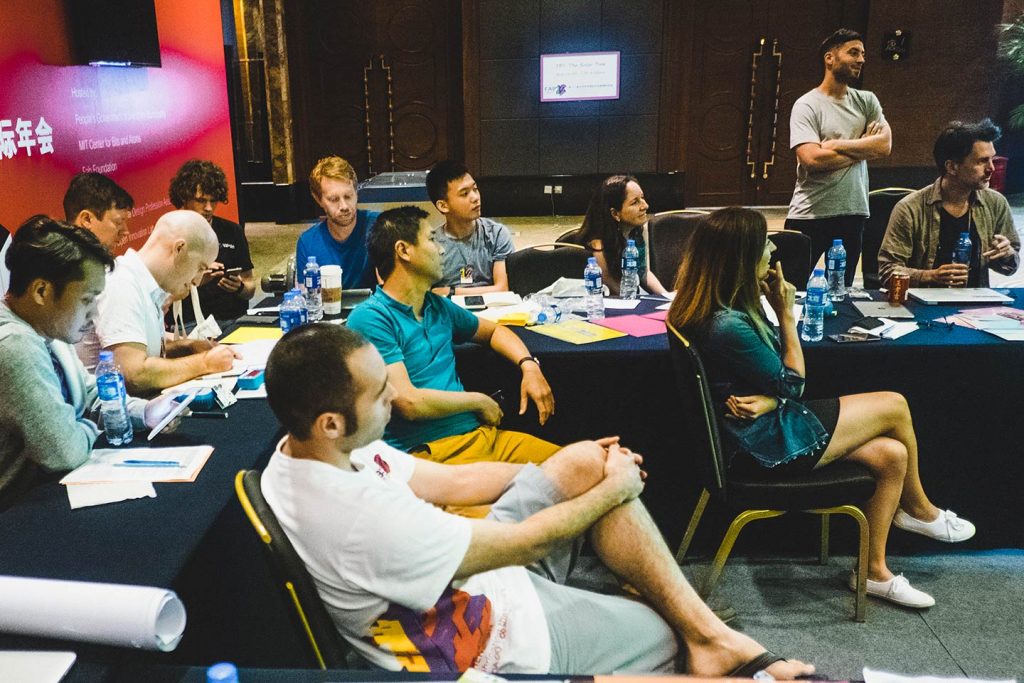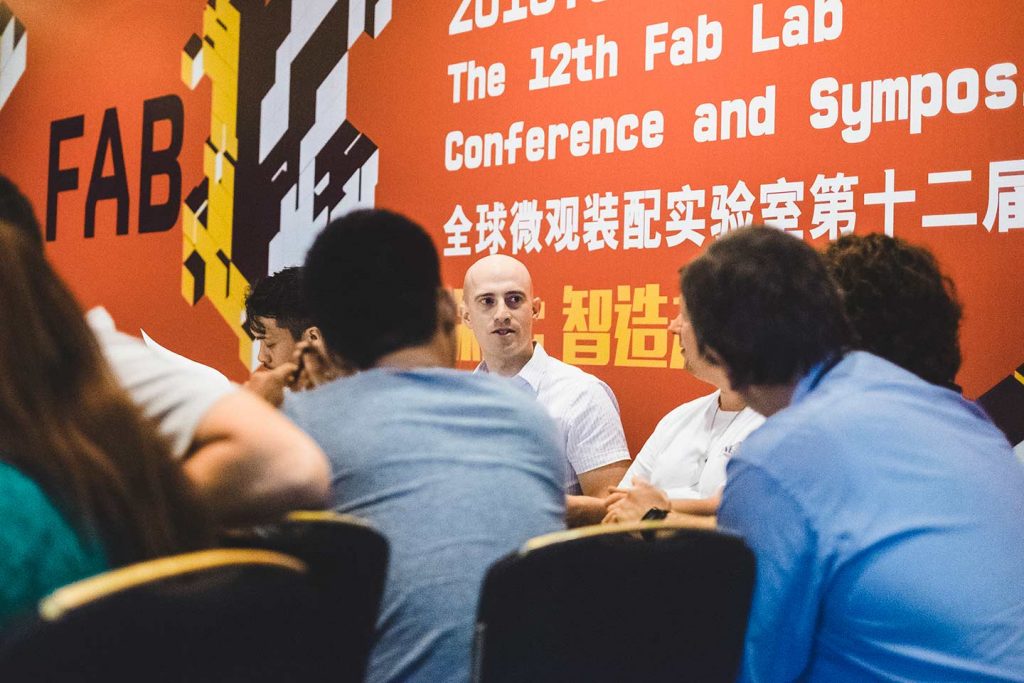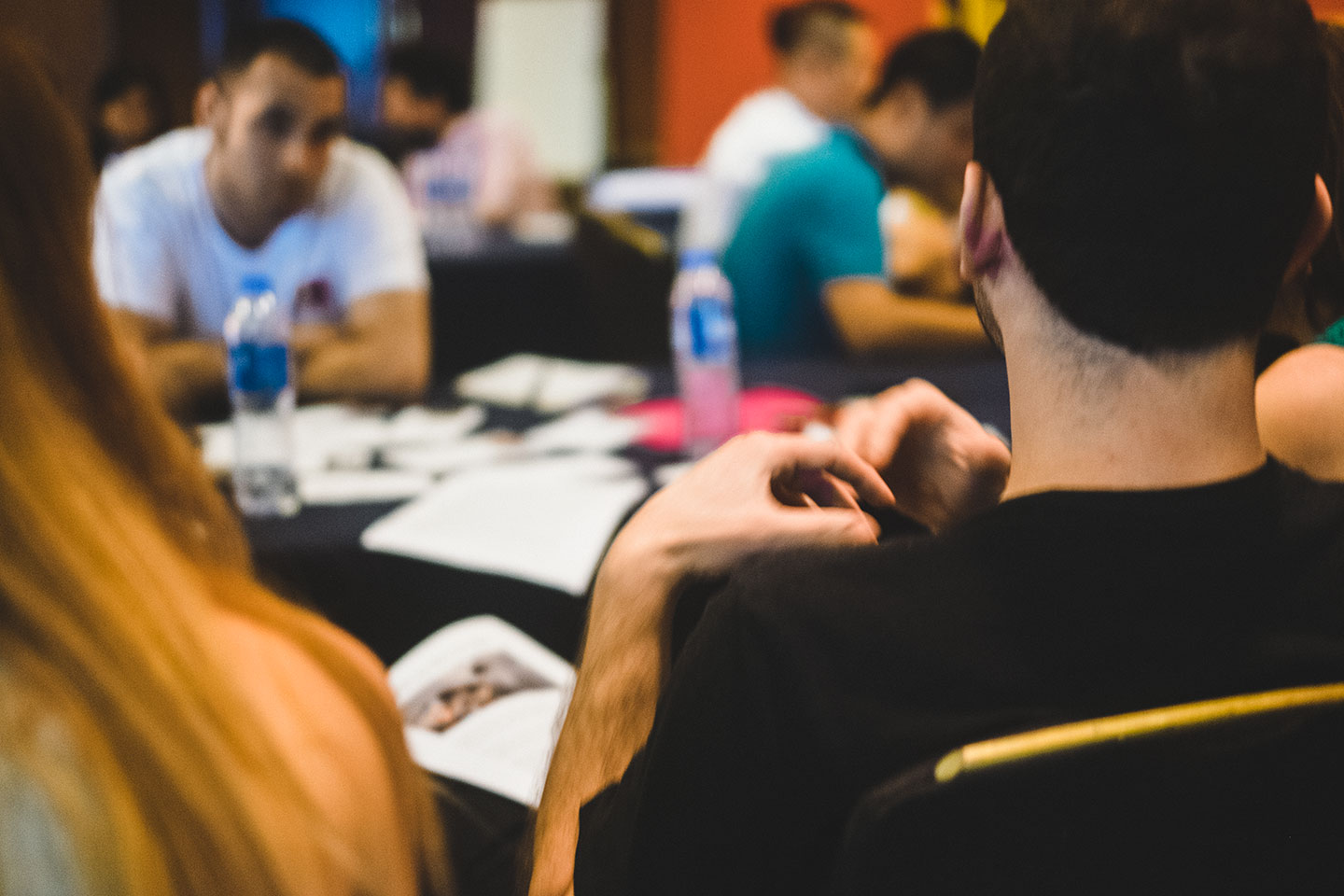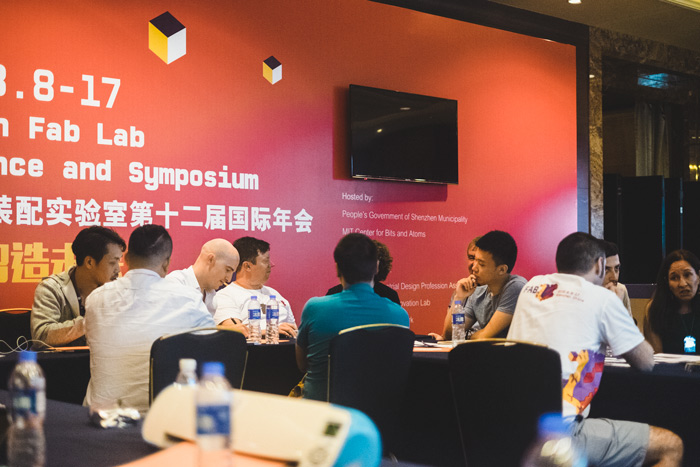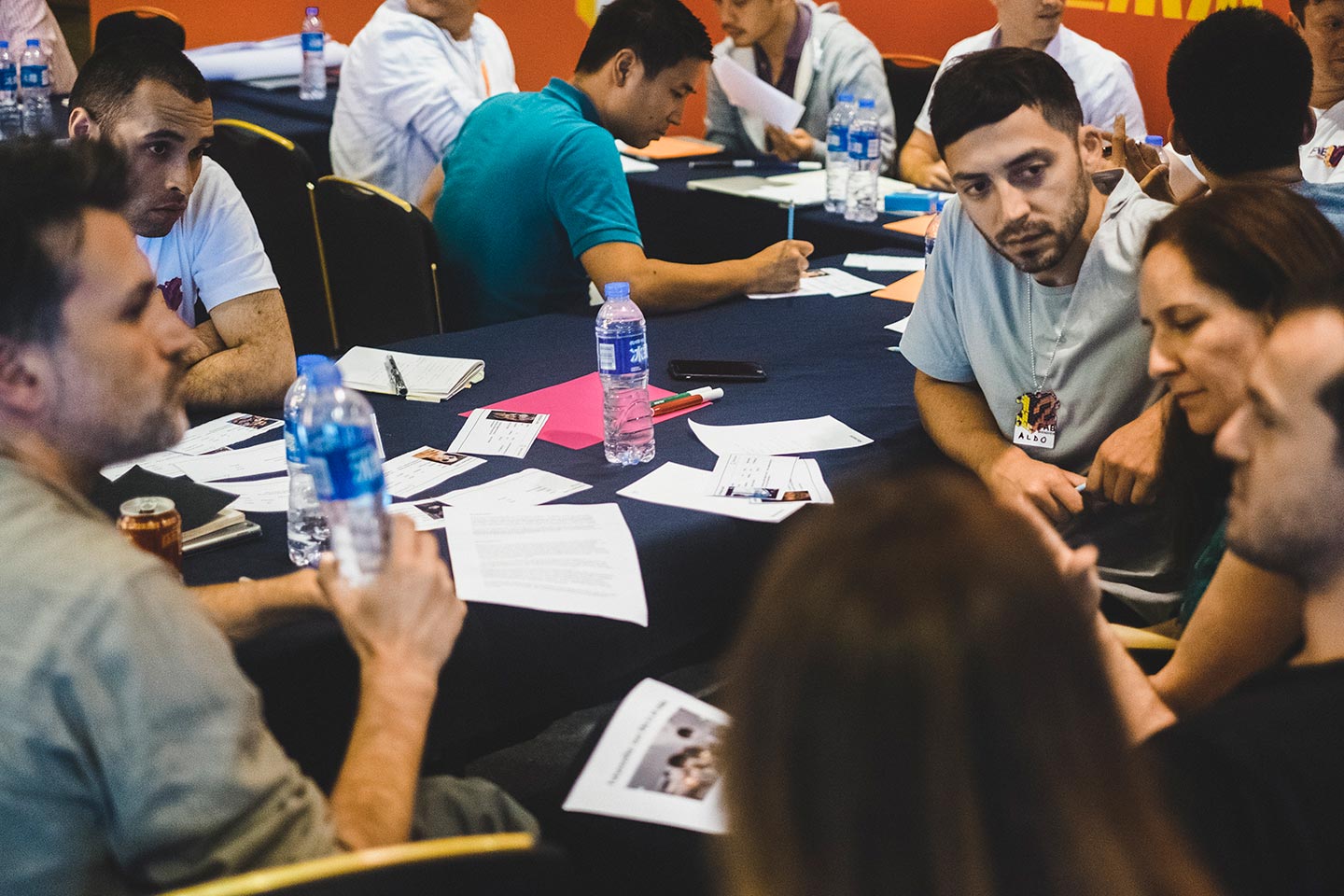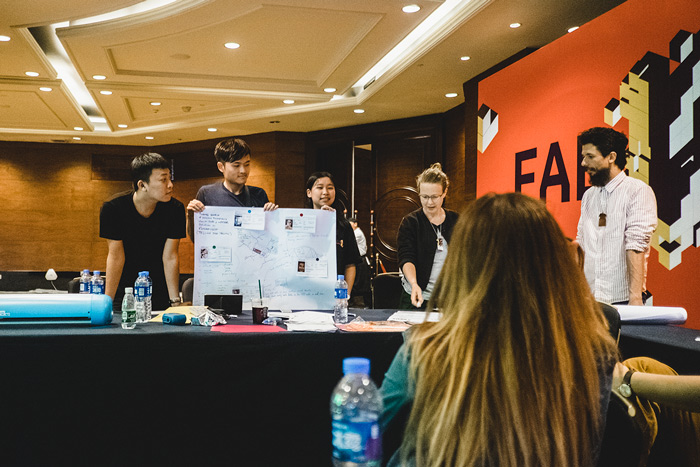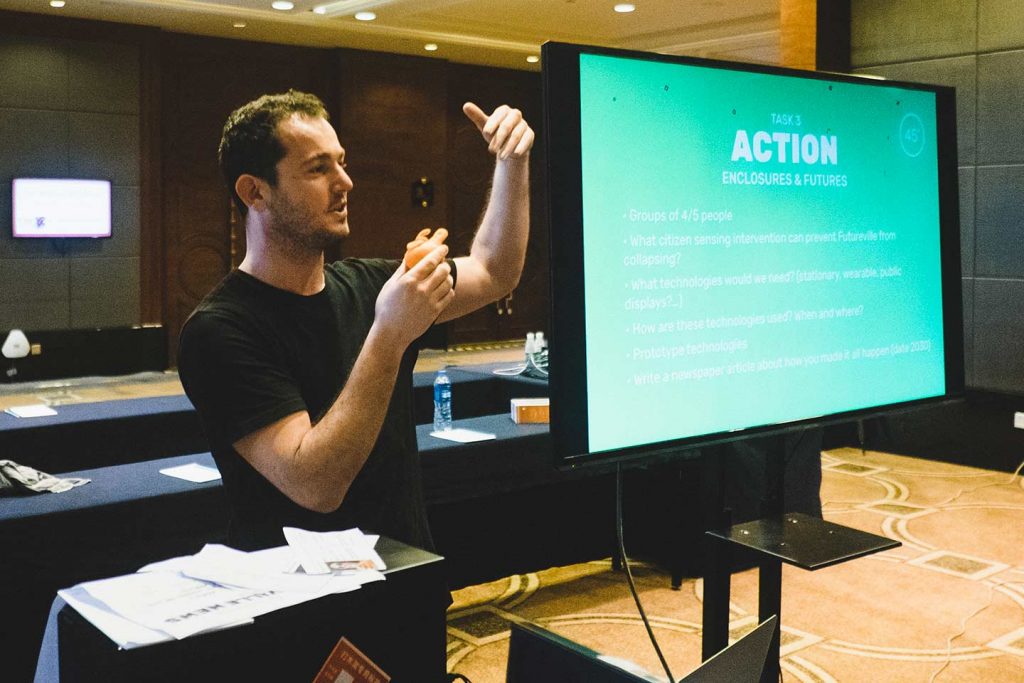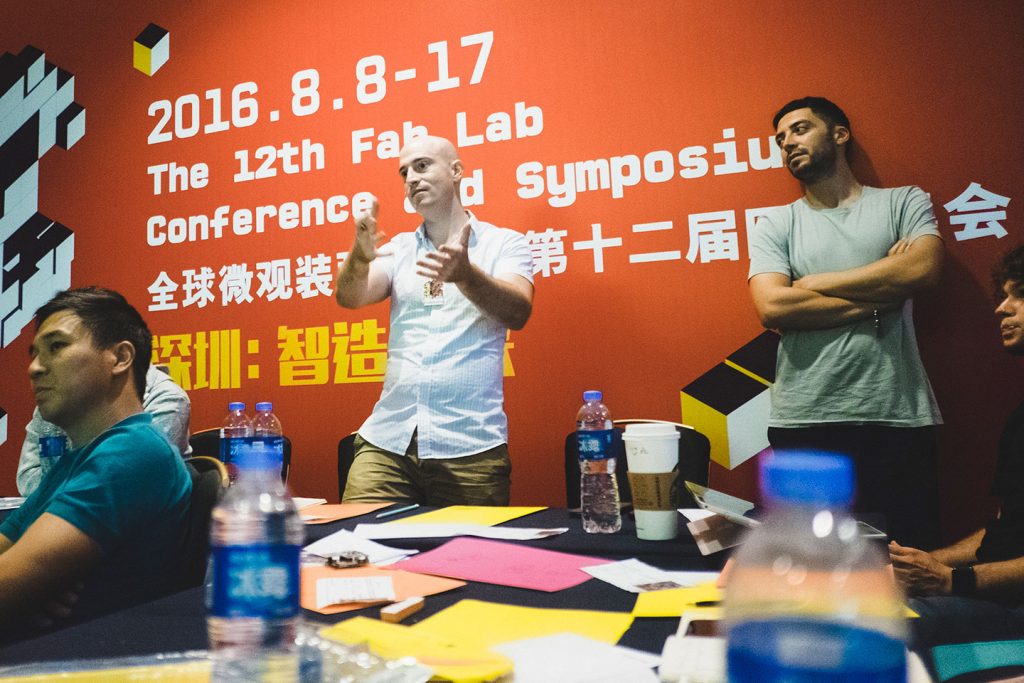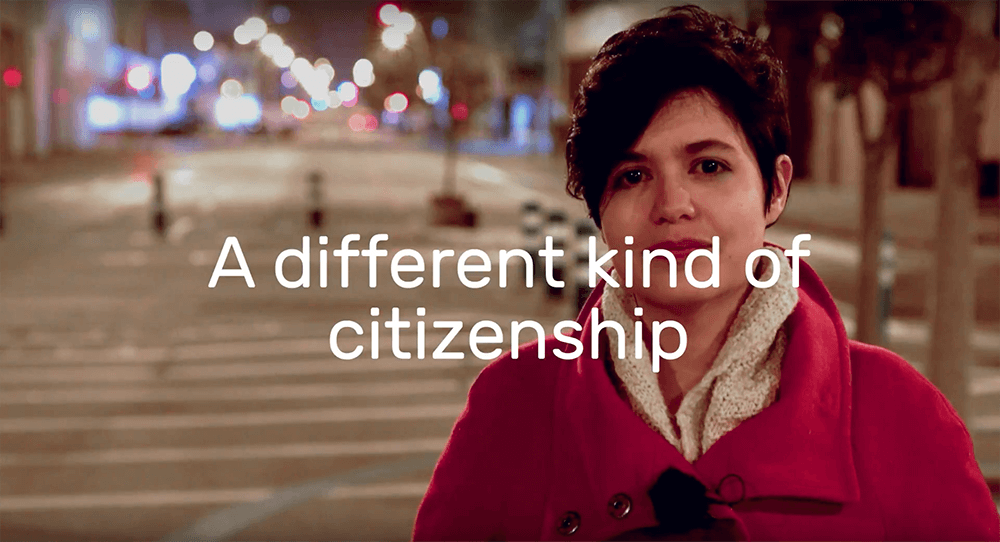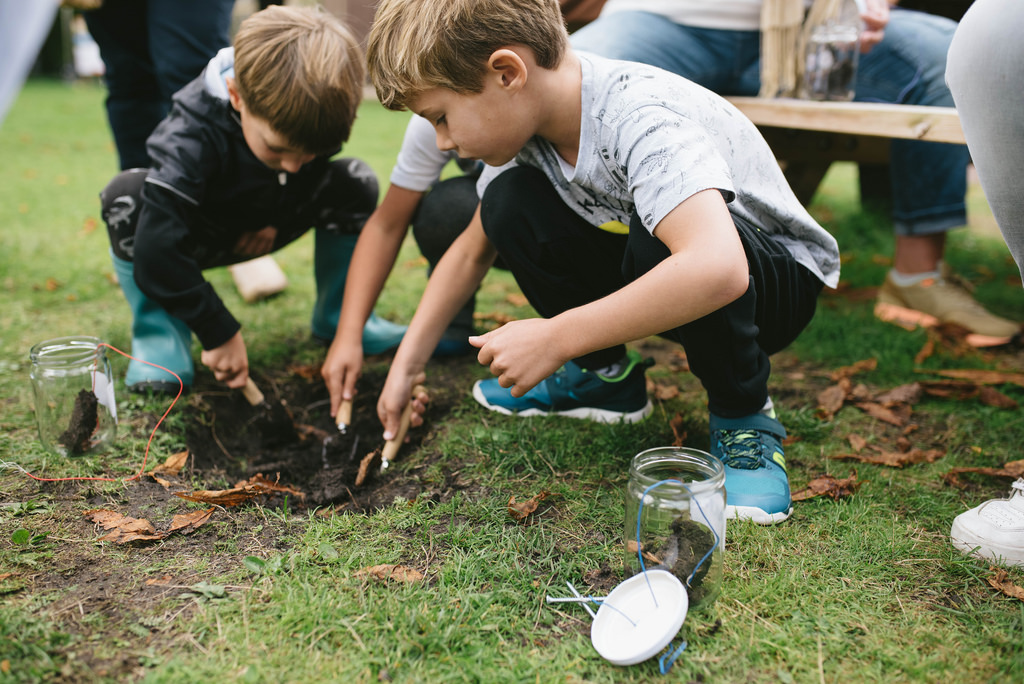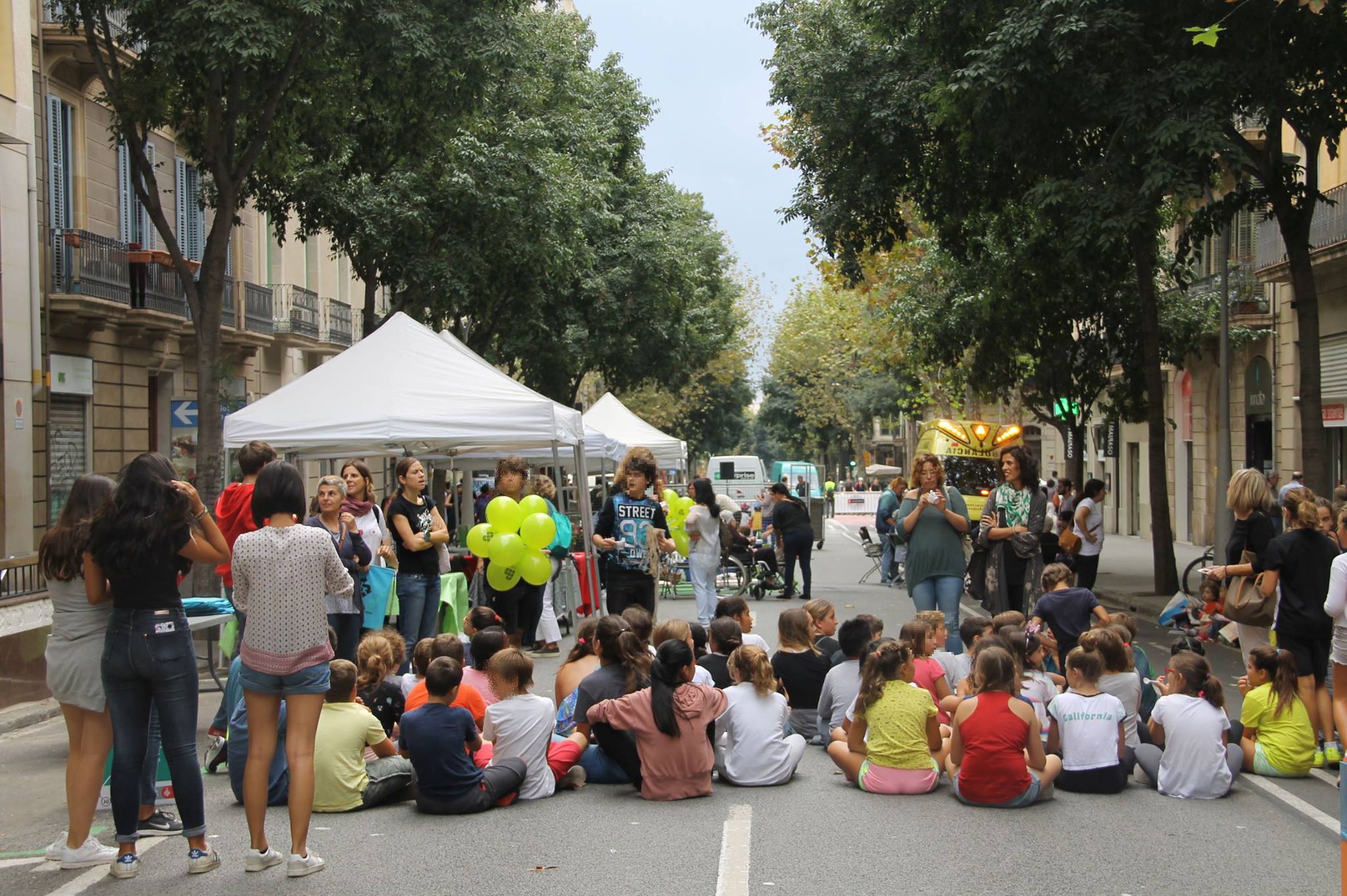Making the future of sensing
22 August 2016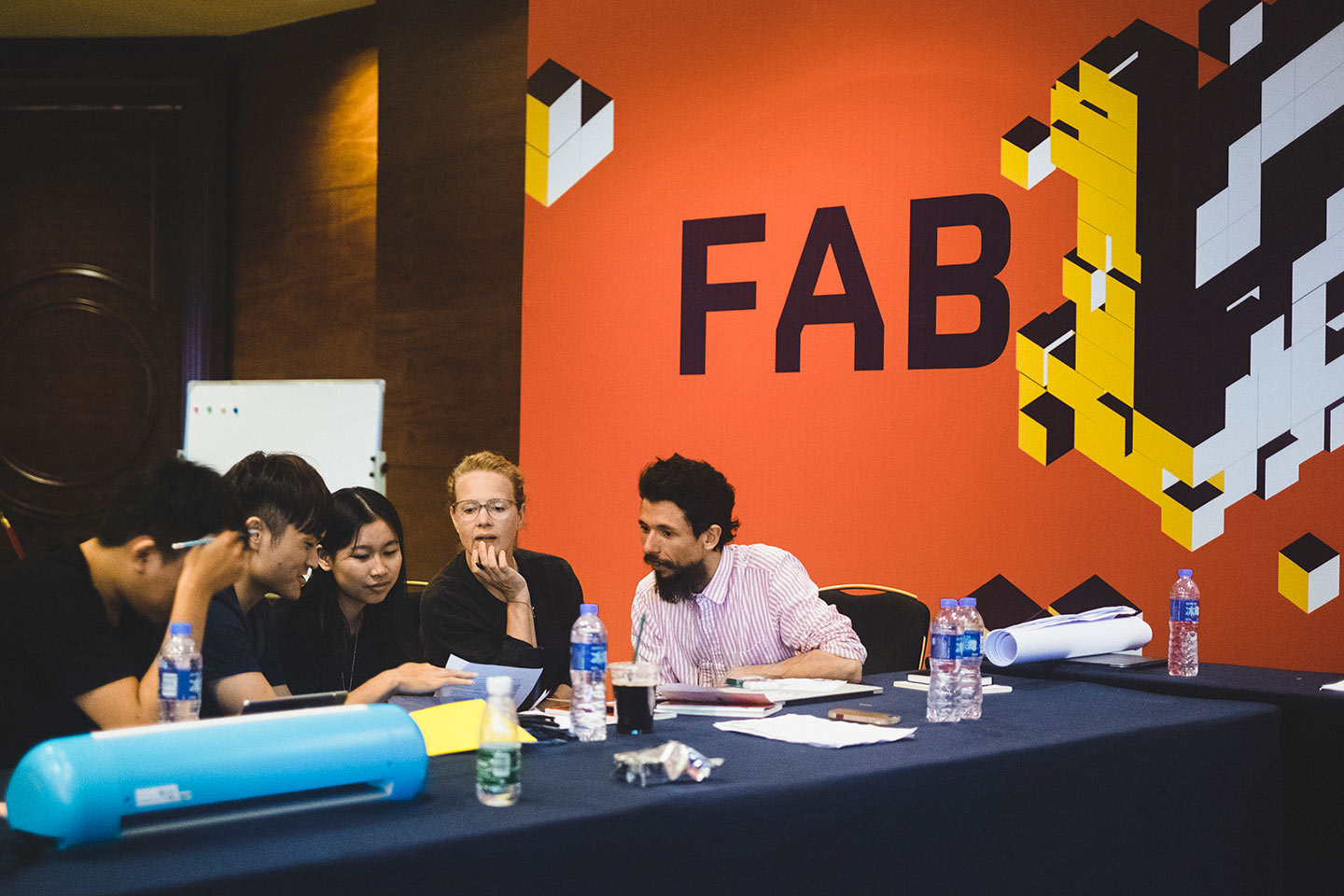
How can makers and designers collaborate to re-think the future of participatory sensing? How can sensors and data be designed to foster broad engagement and sustainable positive action? These were some of the questions that participants explored at the Making Sense workshop held on August 9th at the Fab12 annual conference in Shenzhen.
The Making Sense team members, Gui Seiz (IAAC), Emma Pareschi (Waag) and Mara Balestrini (IAAC) devised a workshop centered around critical design methods to guide the creative process, and engage participants, in imagining how participatory sensing tools and initiatives could help to address pressing environmental issues in Futureville, a fictional city. To achieve this goal, the was workshop comprised of three phases.
Phase 1
What is participatory sensing?
During the first section we presented the Making Sense project, the aims of the workshop, and the definition and principles of urban participatory sensing. We also discussed why data sensemaking is important, as well as new approaches to sensor enclosure design and data displays: from the Smart Citizen Kit to The Array of Things, Physikits, Plume app, among others. The aim was for participants to become familiar with the main technical, social and environmental challenges and opportunities associated with the practice of urban participatory sensing.
Phase 2
‘Data jam’
Sensor data is hard to make sense of. What do all those numbers mean and how can we derive knowledge from them? In this section participants had an opportunity to visualise sensor data and learn different techniques to filter and represent it. In particular, they learnt more about air quality and noise pollution. The goal was to understand what happens between the process of data collection and visualisation for participants to be able to imagine novel ways of data capture and representation.
Phase 3
Scenario-based critical prototyping
In the final stage we formed three groups and delved into the current state of Futureville and the environmental crisis affecting the lives of its inhabitants. Persona cards were filled out in order to ensure that the scenarios included a diverse range of city stakeholders, from school children to retired people, public servants, journalists, politicians and homeless people.
Based on the environmental threats faced by these communities, the workshop participants envisioned ways in which inclusive urban sensing interventions could pave the way towards an empowering solution. Then, based on these scenarios, participants prototyped their sensor technologies using diverse workshop materials and presented their proposal to the rest of the participants.
Outcome
The workshop was inspiring in many ways.
First, although the starting point (the current situation in Futureville) was the same for all, each group of participants came up with a completely different yet powerful intervention idea.
One group envisioned a situation where teenagers would rise against pollution by engaging in guerrilla actions that included assembling and throwing bespoke “air quality Molotov bombs”. These artefacts would dissolve pollutants while expressing an impactful message to society.
Another group designed a game called “Pokemon GoGreen” that nudges people to reduce their carbon emissions, as Pokemons would only appear in pollution free places. The game included other thoughtful features like the possibility to buy “air bubbles” (where Pokemons would thrive) by switching to green energies.
The third group proposed a different approach based on re-thinking public transportation. Their idea was to use buses to collect and share data on environmental pollution in real time while engaging passengers and city dwellers. This mobile sensing network would therefore provide mobility, sensing and awareness as a public service.
The “Making the future of sensing” workshop at the Fab12 was a fruitful experience that contributes fresh thinking and ideas that will inform our future pilot interventions in Amsterdam, Barcelona and Prishtina.
We want to thank the participants for their energy and enthusiasm and hope that this workshop was as positive for them as it was for us!
